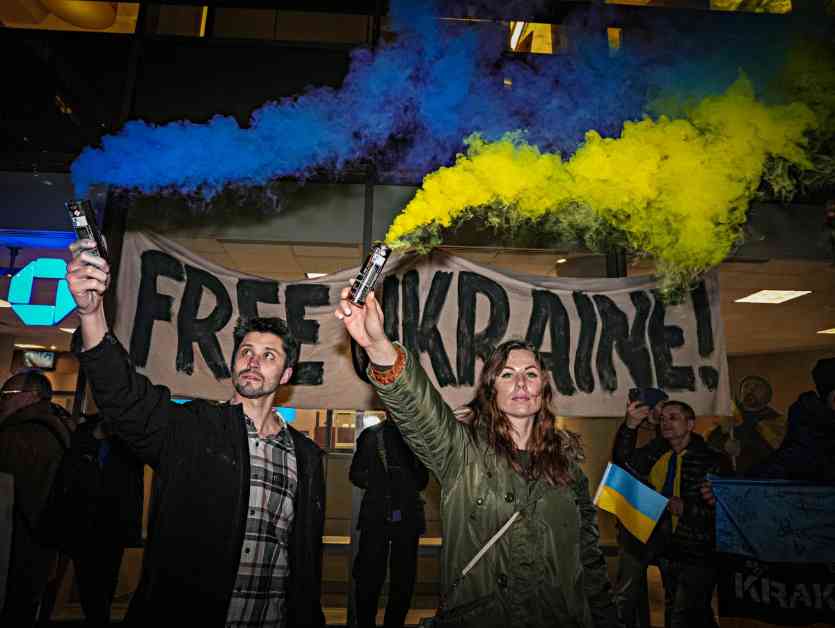In the bustling neighborhoods of New York City, a quiet unease grips the hearts of Ukrainian immigrants and former Soviet residents. The recent verbal sparring between President Donald Trump and Ukrainian President Volodymyr Zelenskyy has stirred emotions ranging from shock to frustration among the community. The implications of these interactions, set against the backdrop of Russia’s history of aggression towards Ukraine, are deeply felt by those who call the city home.
Voices of Concern
Brooklyn Assemblyman Michael Novakhov, a Russian immigrant representing various neighborhoods in the borough, voices his disagreement with Trump’s characterization of Zelenskyy as a dictator. Novakhov’s perspective, shaped by his own immigrant experience and political affiliations, sheds light on the complexity of the situation. He emphasizes the need to differentiate between Zelenskyy and Russian President Vladimir Putin, highlighting the nuances often lost in political rhetoric.
Andrew Stasiw, principal of St. George Academy in Little Ukraine, brings a personal connection to the conversation. As the son of Ukrainian immigrants, Stasiw echoes concerns about the impact of Trump’s words on both Zelenskyy and Putin. His observations reflect a broader sentiment within the community, where ties to Ukraine and its struggles run deep.
Looking Ahead
As the geopolitical landscape continues to shift, the fears of an emboldened Putin loom large. Oleg “Ollie” Sakhno, a Ukrainian immigrant and business owner, paints a grim picture of Russia’s ambitions, warning of potential repercussions beyond Ukraine’s borders. His words carry a sense of urgency, urging vigilance and solidarity in the face of looming threats.
The echoes of history reverberate in the reflections of Tbilisi-born Nina Mdivani, an art curator and writer based in the Bronx. Drawing parallels between past conflicts and present challenges, Mdivani underscores the importance of collective action and shared values in resisting oppressive regimes. Her poignant words serve as a reminder of the resilience and determination that define the human spirit in times of crisis.
Amidst the uncertainty and apprehension, the importance of American support emerges as a beacon of hope. Kind Deeds President Oleksandr Rubtsov’s advocacy for Ukraine’s inclusion in peace negotiations reflects a broader commitment to democratic principles and global security. His words resonate with a sense of urgency, emphasizing the need for unity and engagement in shaping a more just future.
As the conversation unfolds, a sense of shared responsibility emerges among New Yorkers and Americans alike. The challenges posed by Putin’s ambitions demand a collective response rooted in awareness, solidarity, and a steadfast commitment to upholding democratic values. In the face of adversity, the voices of unity and resilience ring loud and clear, echoing across the diverse tapestry of New York City.

